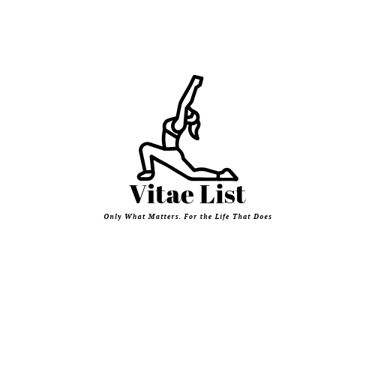Hydration & Electrolytes: The Overlooked Keys to Power and Recovery
Hydration and electrolytes are the missing link in strength training. Learn how water, sodium, magnesium, and potassium fuel performance, support recovery, and prevent fatigue in strength athletes.
NUTRITION
Vitae List
10/9/20253 min read


Hydration & Electrolytes: The Overlooked Keys to Power and Recovery
Disclosure: Vitae List is a participant in the Amazon Services LLC Associates Program, an affiliate advertising program designed to provide a means for sites to earn fees by linking to Amazon.com and affiliated sites. As an Amazon Associate, we earn from qualifying purchases at no extra cost to you.
Why Hydration Matters More Than You Think
When most lifters think about recovery, they focus on protein, carbs, or supplements. But water and electrolytes are often overlooked—despite being fundamental to performance.
Strength training places heavy demands on hydration. Dehydration as little as 2% of body weight can impair strength, endurance, and cognitive function. Muscles that are even slightly dehydrated lose efficiency, and recovery slows down.
Electrolytes—minerals like sodium, potassium, magnesium, and calcium—are equally crucial. They regulate fluid balance, nerve signaling, and muscle contractions. Without enough, you risk fatigue, cramps, and reduced training output.
Hydration isn’t just about drinking water—it’s about maintaining the right balance of fluids and electrolytes.
The Role of Electrolytes in Strength Training
Sodium
Function: Regulates fluid balance, blood volume, and muscle contractions.
Why lifters need it: Heavy sweating can deplete sodium, impacting performance.
Sources: Salt, electrolyte mixes, broth.
Potassium
Function: Works with sodium to regulate hydration and muscle contractions.
Why lifters need it: Low potassium can cause cramping and weakness.
Sources: Bananas, potatoes, beans, avocados.
Magnesium
Function: Supports over 300 enzymatic reactions, including muscle relaxation and energy production.
Why lifters need it: Deficiency can lead to cramps, poor recovery, and low energy.
Sources: Nuts, seeds, leafy greens, dark chocolate, magnesium supplements.
Calcium
Function: Essential for muscle contraction and bone health.
Why lifters need it: Inadequate calcium affects muscle performance and recovery.
Sources: Dairy, fortified plant milks, leafy greens.
📌 Takeaway: You don’t just lose water when you sweat—you lose minerals that are critical for strength and recovery.
Hydration Strategies for Strength Athletes
1. Start Hydrated
Don’t wait until you’re thirsty. Drink steadily throughout the day.
Baseline: ~0.6–0.7 oz per pound of body weight daily. A 180 lb athlete should aim for ~110–125 oz water/day.
2. Pre-Workout
Arrive at your session hydrated.
Drink ~16–20 oz water 1–2 hours before training.
Add electrolytes if it’s hot, humid, or a long session is planned.
3. During Training
For workouts under 60 minutes, water is enough. For longer or more intense sessions:
Sip 8–12 oz every 20 minutes.
Consider electrolyte drinks to replace sodium and potassium.
4. Post-Workout
Rehydration is part of recovery.
Drink 20–24 oz of water per pound of body weight lost in sweat.
Pair with electrolytes to restore balance.
Signs You’re Underhydrated
Early fatigue during sets.
Dizziness or lightheadedness.
Cramping mid-session.
Dark urine (light yellow is the goal).
Slow recovery and lingering soreness.
Real Food Electrolyte Options
Not every electrolyte has to come from a sports drink.
Sodium: salted nuts, broth, pickles.
Potassium: bananas, potatoes, spinach, beans.
Magnesium: pumpkin seeds, almonds, dark leafy greens.
Calcium: dairy, fortified almond milk, leafy greens.
Best Supplements for Hydration & Recovery
Electrolyte Powders or Tablets: Convenient for training or hot conditions. Look for blends with sodium, potassium, magnesium, and minimal added sugar.
Creatine Monohydrate: Supports intracellular water retention, improving strength and recovery.
Magnesium Glycinate or Citrate: Supports muscle relaxation and reduces cramps.
Coconut Water: Natural electrolyte source, though often lower in sodium than needed for athletes.
Hydration Mistakes to Avoid
Relying only on plain water. – Overhydration without electrolytes can dilute sodium levels (hyponatremia).
Chugging all at once. – Steady hydration beats dumping 40 oz of water right before training.
Ignoring sweat rate. – Some athletes lose 2+ liters per session. Track your body weight before and after workouts.
Believing sports drinks = performance. – Many commercial drinks are loaded with sugar and low in actual electrolytes. Choose wisely.
Sample Daily Hydration Plan (180 lb Athlete)
Morning: 20 oz water + electrolytes.
Pre-Workout (1 hr before): 16 oz water.
During Training (90 min strength session): 24 oz water + electrolyte packet.
Post-Workout: 20 oz water + sodium + potassium snack (banana with salted peanut butter).
Evening: 20 oz water + magnesium supplement.
Total: ~100–120 oz water + electrolyte support = optimal hydration for performance and recovery.
The Bottom Line
Hydration and electrolytes aren’t flashy, but they’re essential. Strength athletes often spend hundreds on supplements yet overlook the most fundamental performance enhancer: fluid balance.
Water drives performance. Electrolytes ensure that water actually works in your body. Together, they:
Maintain strength output.
Reduce fatigue and cramping.
Support recovery between sessions.
Keep muscles firing at their peak.
Don’t wait until thirst hits—hydrate daily, fuel with electrolytes, and make recovery effortless. Strength is built in the gym, but it’s powered by water and minerals.
